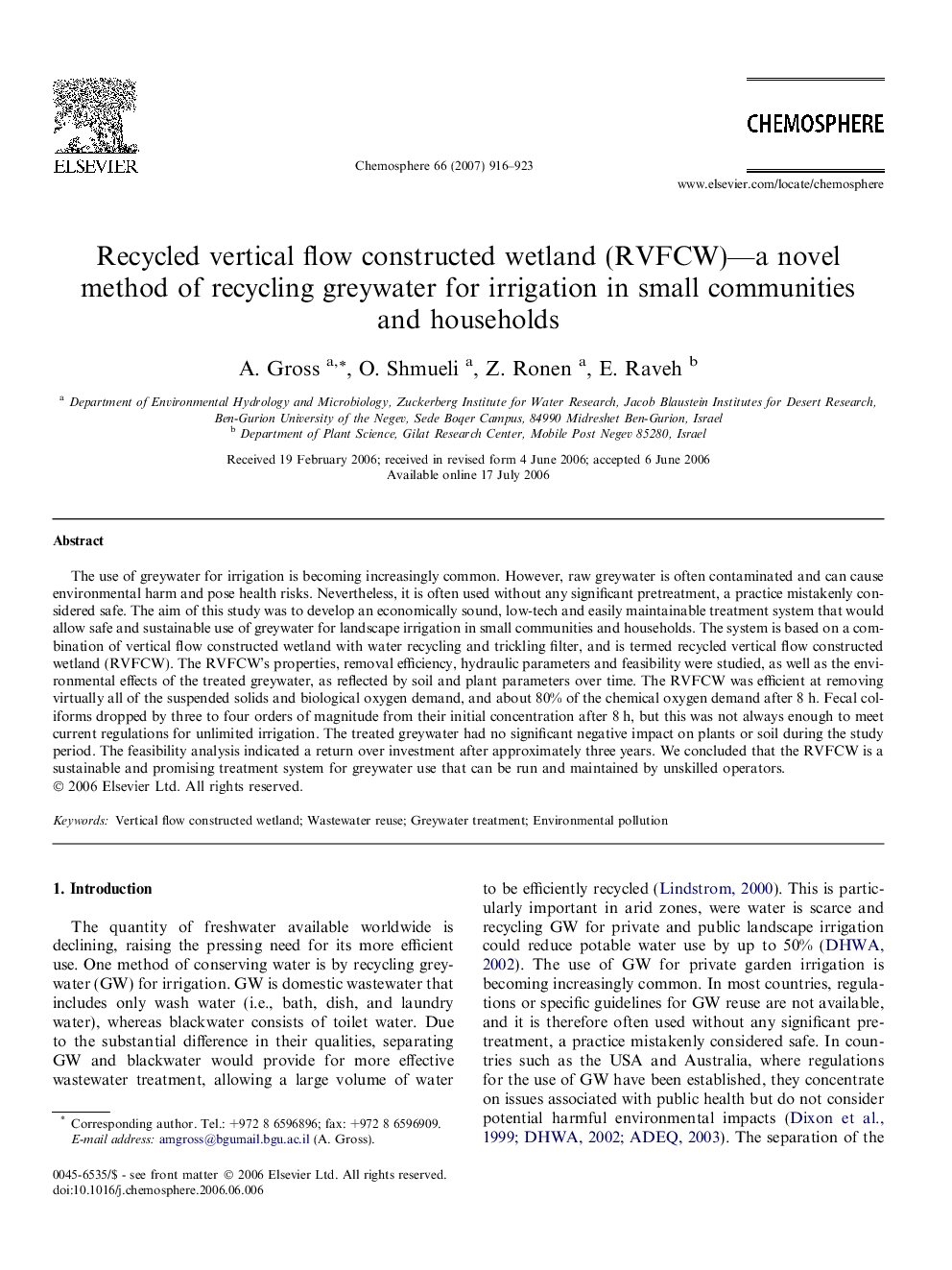| Article ID | Journal | Published Year | Pages | File Type |
|---|---|---|---|---|
| 4415908 | Chemosphere | 2007 | 8 Pages |
The use of greywater for irrigation is becoming increasingly common. However, raw greywater is often contaminated and can cause environmental harm and pose health risks. Nevertheless, it is often used without any significant pretreatment, a practice mistakenly considered safe. The aim of this study was to develop an economically sound, low-tech and easily maintainable treatment system that would allow safe and sustainable use of greywater for landscape irrigation in small communities and households. The system is based on a combination of vertical flow constructed wetland with water recycling and trickling filter, and is termed recycled vertical flow constructed wetland (RVFCW). The RVFCW’s properties, removal efficiency, hydraulic parameters and feasibility were studied, as well as the environmental effects of the treated greywater, as reflected by soil and plant parameters over time. The RVFCW was efficient at removing virtually all of the suspended solids and biological oxygen demand, and about 80% of the chemical oxygen demand after 8 h. Fecal coliforms dropped by three to four orders of magnitude from their initial concentration after 8 h, but this was not always enough to meet current regulations for unlimited irrigation. The treated greywater had no significant negative impact on plants or soil during the study period. The feasibility analysis indicated a return over investment after approximately three years. We concluded that the RVFCW is a sustainable and promising treatment system for greywater use that can be run and maintained by unskilled operators.
